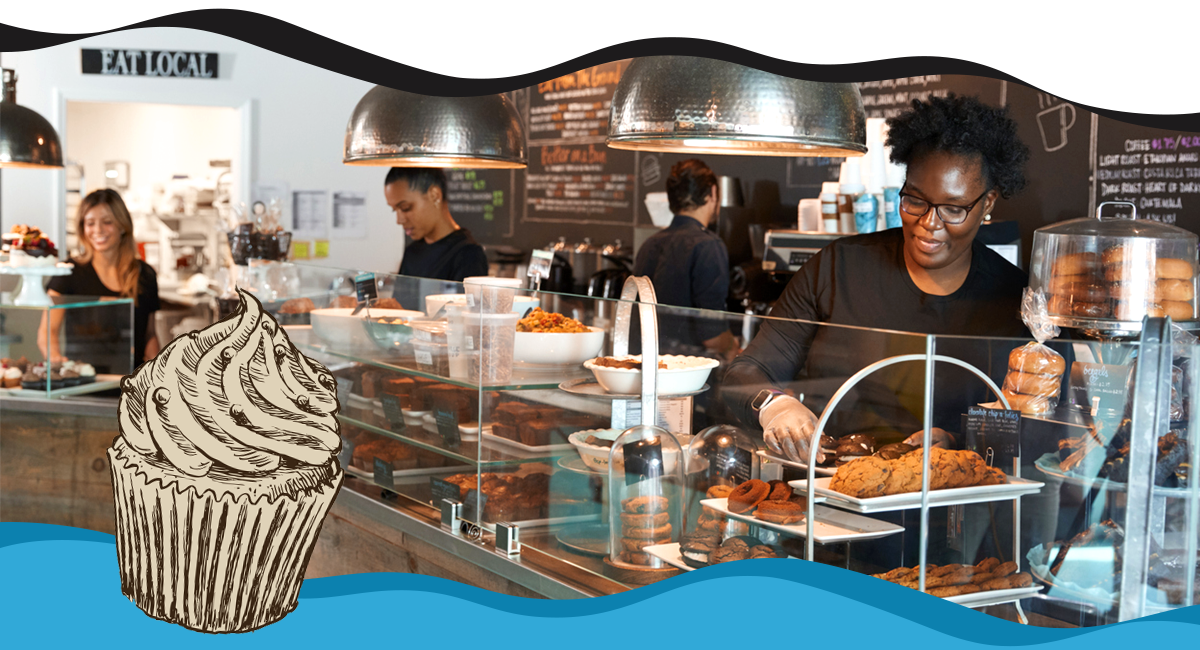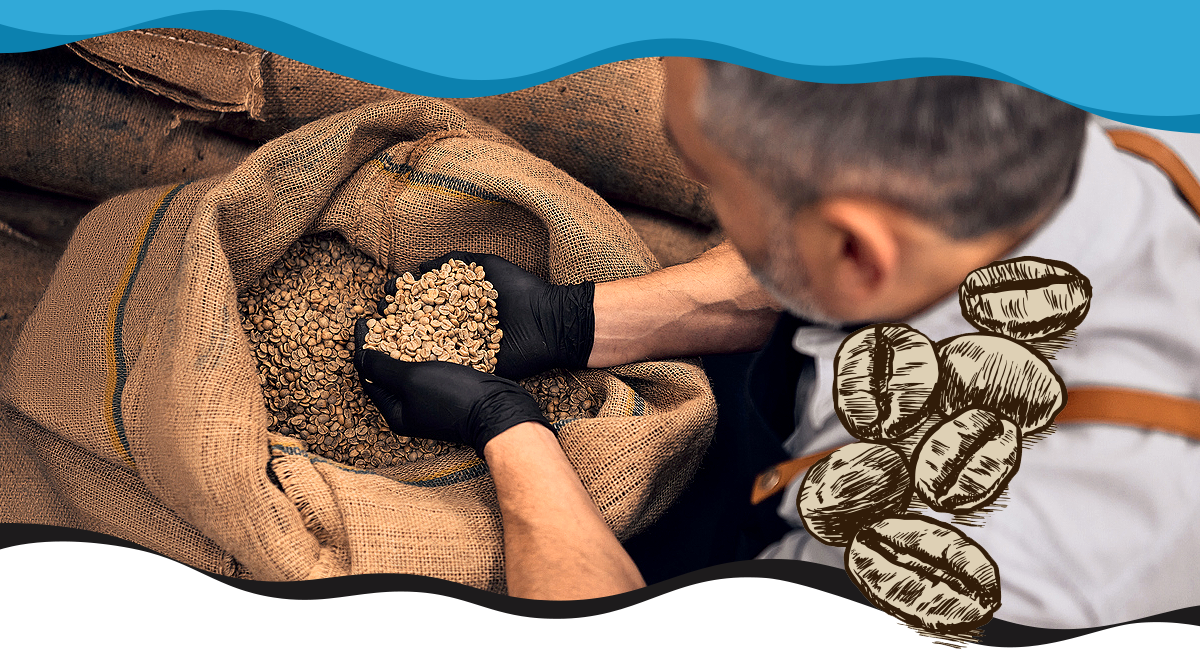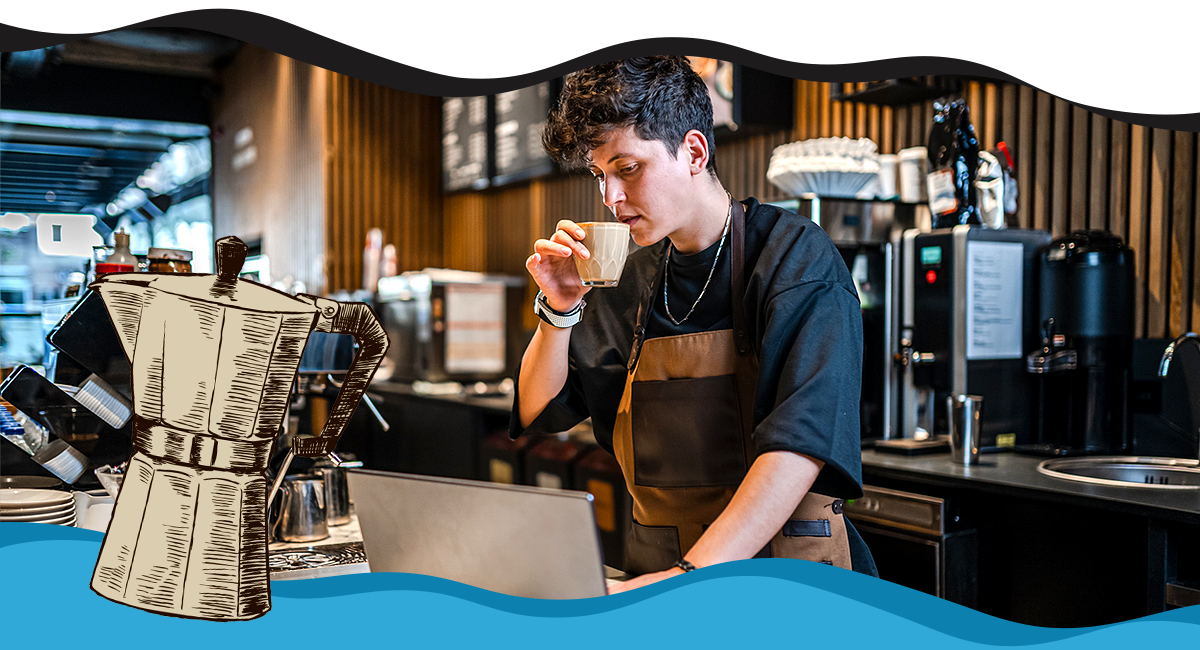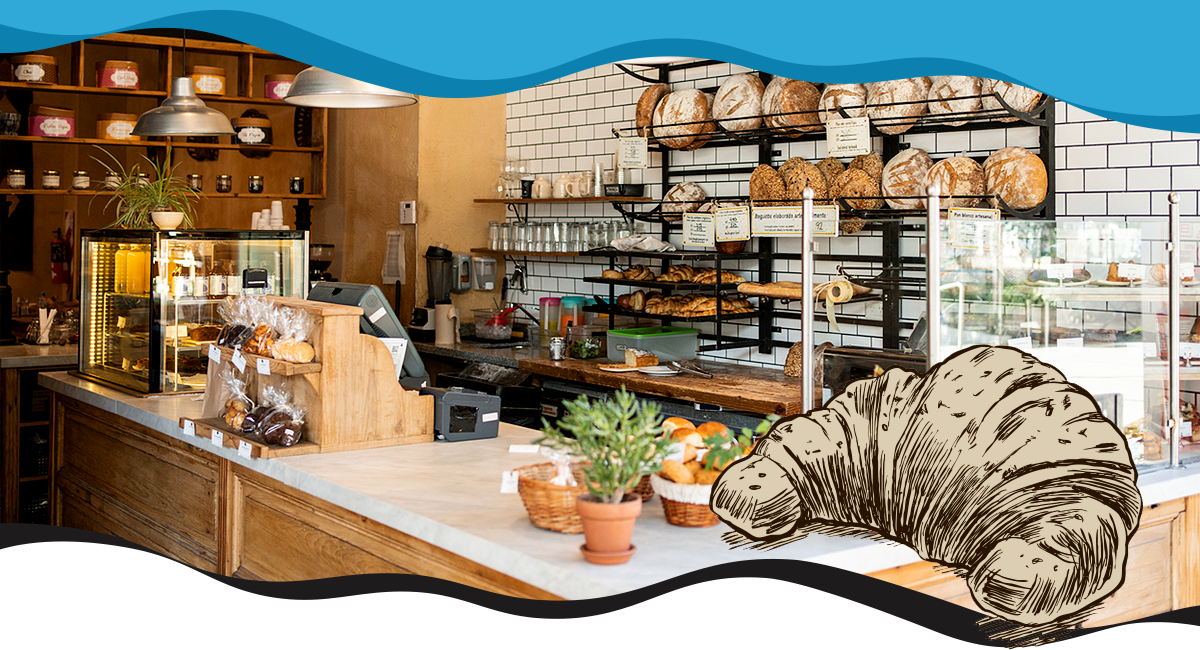How To Make Your Coffee Shop More Eco Friendly |
 Print this page Print this page
|
How To Make Your Coffee Shop More
Eco Friendly
We’ve all seen the devastating effects of climate change and are becoming increasingly aware of the impact we have on the planet, whether that’s at home or where you work. There’s no doubt that we all need to do more to protect our environment and if you’re a coffee shop owner there are plenty of steps you can take to make your operations more sustainable.
Regardless of the size or scale of your business, implementing some eco-friendly ideas and making changes to how you do things has many benefits for you, your customers, and the planet. It doesn’t have to be difficult either. If you want to start making changes but don’t know where to start, read on to discover how to make your coffee business more eco-friendly.

Why Should Coffee Shops Be Eco-Friendly?
Put simply, if you care about the planet and its future, it’s worth making your business more eco-friendly. Making a few small changes gives you the confidence that your business is operating in an ethical way. Of course, if your business is eco-friendly your customers benefit too. Offering them sustainable and eco-friendly options helps them to make conscious choices, which more and more consumers are moving towards.
You might find that making these changes helps you to win new customers. Members of the public are increasingly choosing businesses and services that align with their values, and many are looking for sustainable and eco-friendly solutions.
Boosting your environmentally friendly credentials can be a great selling point that might help you stand out from the competition. You’re likely to retain your existing customers and gain some new ones – don’t be afraid to advertise the steps you’re taking to operate in a more eco-friendly way!

Eco-Friendly Steps For Coffee Shops & Businesses
There are lots of options if you want to make your business more eco-friendly. It might be tough to know where to start but thinking carefully about how your business operates currently can help you decide which changes to put in place. If you’re unsure what the options are, we’ve put together some helpful suggestions that can suit a wide variety of coffee businesses.

1. Choose eco-friendly supplies
Coffee businesses often get through a large number of disposable items like cups, cutlery, and takeaway food packaging. Plastic items aren’t always recyclable and can ultimately have a significant impact on the environment. Similarly, many people assume that standard takeaway coffee cups can be recycled but in fact, some have a plastic coating that means they’re unsuitable for recycling.
One change that’s easy to implement and clearly shows your commitment to sustainability is to switch to environmentally friendly coffee disposables. There’s plenty on the market to choose from. Some of the options are:

-
Paper straws
-
Biodegradable bamboo or wooden cutlery
-
Cups made from recycled materials
-
Recyclable cups and packaging
Another useful idea to limit the number of harmful disposables your business uses is to offer a small discount to customers who bring in their own reusable cups. This can be a great selling point too – discounted coffee is likely to tempt new customers into your business!

2. Buy Coffee Beans And Other Products Locally
Buying products that are imported from around the world can substantially increase your business's carbon footprint. You can mitigate this by shopping locally for your supplies as far as possible. Almost all of the world’s coffee is produced abroad, however it is possible to reduce the amount of travelling your coffee needs to do.
Look for UK based coffee roasters who can supply your wholesale coffee beans, which reduces the amount of air miles your coffee needs to travel before it reaches you. There’s a good chance that there are also farmers nearby who can supply you with milk and other ingredients. It’s worth checking out the options for suppliers near you so you can limit the carbon footprint of the ingredients you use.
Using locally sourced ingredients for your food offering is another great selling point for your business too. Many customers love to shop locally and would rather choose a business that uses quality locally-produced ingredients for items such as sandwiches, salads and cakes. Doing this is also a valuable opportunity to establish a partnership with another small business in your area.

3. Reduce Your Energy Use
Busy coffee shops and cafes often consume significant amounts of energy. Reducing your energy use is good for your bank balance as well as for your environmental impact. Where possible, upgrade to energy-efficient appliances like espresso machines and refrigerators to reduce the amount of energy that your business consumes each day.
If you’ve had some of your equipment for a while, upgrading to a new model might mean you can find one that operates much more efficiently. It’s also recommended to clean your coffee machines and keep them well serviced so that they run as efficiently as possible.
Another area to think about here is lighting. Of course, you want your coffee shop to be bright and engaging but your lighting choices can consume a lot of electricity and increase the cost of your bills. Energy-saving light bulbs, for example LED bulbs, are a fantastic way to reduce the amount of energy you use quickly and easily. Lowering your energy bills is of course another step you can take towards making your coffee shop more profitable, as well as being kinder for the environment.
It’s also worth considering whether you always need the lights on at your business. You certainly don’t want to leave your customers sitting in the dark, but on bright and sunny days you might be able to keep the lights off for longer. This creates a pleasant atmosphere and limits the amount of energy you’re consuming.

4. Decrease Food Waste
Any catering business is going to have to deal with a certain amount of food waste. Wasting food also means wasting the water and energy required to produce, store and transport it, and often wasted food can end up in landfills.
However, you can reduce the amount of food waste your business generates in a variety of different ways. Thinking about how you order things is vital – consider how much you’re actually selling and try to place orders that match this. You can also consider offering products with a longer shelf life so you don’t have to throw away products that haven’t been eaten that day.
There are also some handy options for dealing with the excess food you can’t avoid. You might consider donating items to your local food bank and therefore supporting food bank users in your community. Another possibility is to let your team members take home unsold sandwiches and pastries – a nice work perk that they’re likely to appreciate. You can also sign up for schemes that let you sell surplus food to customers at a discounted price. Another great benefit of doing this is that you still earn some revenue rather than making a loss when you throw food away.

5. Turn Waste Into Composting
Your used coffee grounds don’t have to become waste that simply ends up in landfills! Naturally, acidic coffee grounds are a fantastic material for composting and you can also purchase compostable coffee filters that don’t just end up in the bin. Many areas offer a composting service that you can sign up for so that waste from your coffee shop is put to good use. It’s worth researching what’s available in your area.
If your area doesn’t offer a composting service you can simply start doing your own composting. If you have plants, greenery, or a garden area at your premises, composted coffee grounds will help to keep the soil rich and fertile, giving you beautiful and healthy plants that brighten up your space.
Alternatively, you can compost your coffee grounds and other food waste and sell or donate them to your customers. This is another great way to make your stance on environmental issues clear for your customers to see, and also gives you an alternative revenue stream if you choose to sell your own compost.

6. Choose Environmentally Friendly Waste Management
If you use a contractor for waste management you need to be confident that they share your commitment to eco-friendly activities. Many waste management companies now prioritise being environmentally friendly and some have a commitment to sending zero waste to landfills. If you already have a waste management contractor it might be worth investigating their strategies.
If the contractor you use doesn’t follow eco-friendly procedures, switching to an alternative provider might be a good decision. Research the options available in your local area to find a provider who shares your principles, and don’t be afraid to ask waste management services about their approaches to recycling and landfill. What happens to your waste once a contractor takes it might be beyond your control, but you can control which company takes it in the first place and choose one with eco-friendly credentials.

Become An Eco-Friendly Coffee Shop
Hopefully, these suggestions have given you some inspiration for making your coffee business more eco-friendly. Every establishment is different and some of these ideas might be easier for you to implement than others. It’s worth thinking carefully about how your business currently operates and which suggestions are feasible for you to introduce.
Making a lot of changes to your business all at once might feel overwhelming, so feel free to start with one or two options and then grow from there. Caring for the environment and impressing your customers with your eco-friendly attitude might be easier than you think.